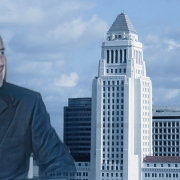Bidenomics Isn’t Working
With the announcement that inflation fell to 3% in June, the US President will no doubt be emboldened in his claim that Bidenomics — essentially a green-tinted government-led economy — is working. Indeed, Joe Biden has been on the trail touting his record, arguing that the economy has thrived under his leadership.
Yet only one-third of Americans approve of his handling of the economy overall, which is a cause of endless frustration to the codger-in-chief and his enablers, now also coping with a public that sees the President as morally compromised.
People dislike Bidenomics for the best reason there can be: it’s not working. Despite inheriting a post-pandemic economy with lots of room to grow, Biden thought the White House should be in charge of it. The results have been mediocre at best — soaring debt, a huge boost in inflation and, most importantly, a record decline in wages. Unemployment is low, in large part due to a diminished workforce, and the stock market has recovered. But the US is hardly booming, with a GDP growth rate under 2%, about the same as most stagnating Western European countries but well below India, China and even some South American countries.
Some of the problem stems from the fact that the President’s policies have been crafted less to boost the economy overall and instead to remake it in a greener guise. Unlike past infrastructure projects — such as the Tennessee Valley Authority that brought electricity to underdeveloped sections of the US, or the Interstate highway system that improved mobility and tied together disparate parts of this vast country — the renewable energy obsession seems unlikely to boost the overall economy. More likely, it will leave a legacy of shortfalls and higher energy prices, as has been the case in all the greenest countries like Germany and Denmark, as well as states such as California.
Of course, some have benefitted from Biden’s largesse on climate, notably investment banks, university researchers, tech companies, and manufacturers of solar panels and batteries. Other initiatives, like the CHIPs Act, hold more promise, and at least offer an alternative to becoming vassals of East Asia.
Read the rest of this piece at UnHerd.
Joel Kotkin is the author of The Coming of Neo-Feudalism: A Warning to the Global Middle Class. He is the Roger Hobbs Presidential Fellow in Urban Futures at Chapman University and Executive Director for Urban Reform Institute. Learn more at joelkotkin.com and follow him on Twitter @joelkotkin.
Homepage photo: Gage Skidmore, via Flickr under CC 2.0 License.

 Gage Skidmore, used under CC 2.0 License
Gage Skidmore, used under CC 2.0 License



 Sean Pollock, via Unsplash
Sean Pollock, via Unsplash

